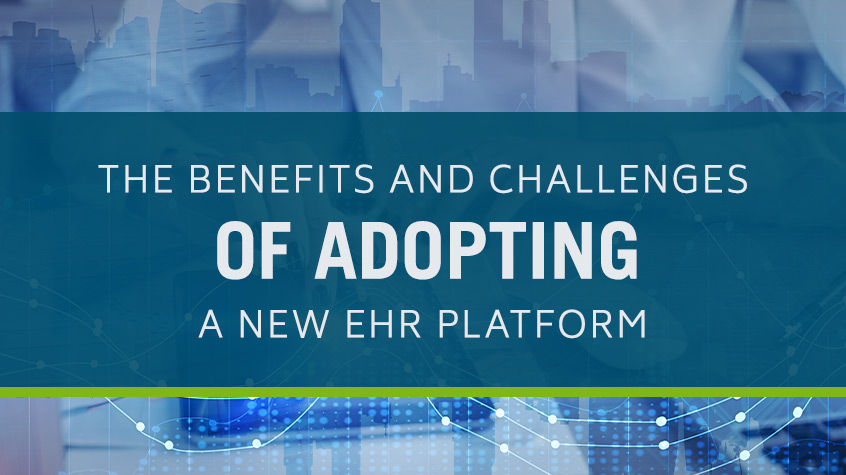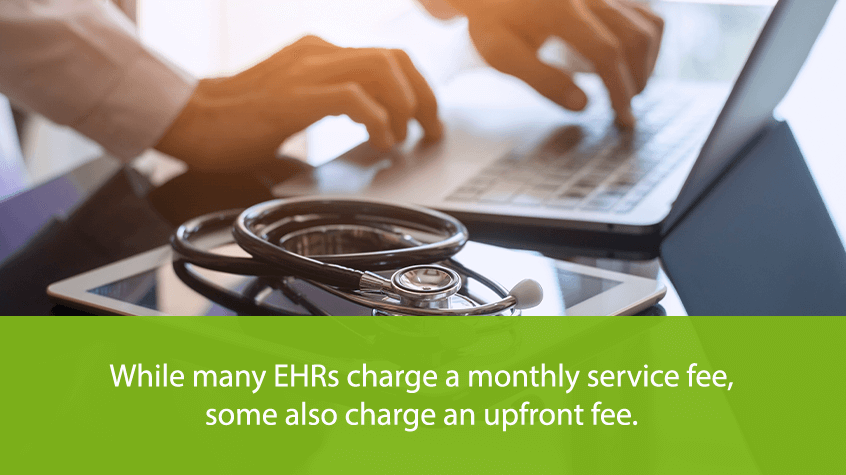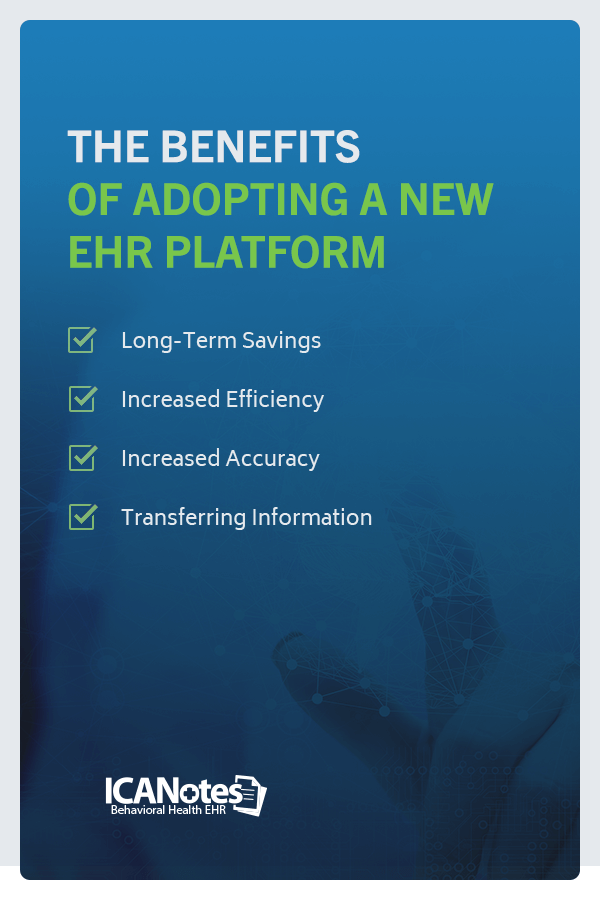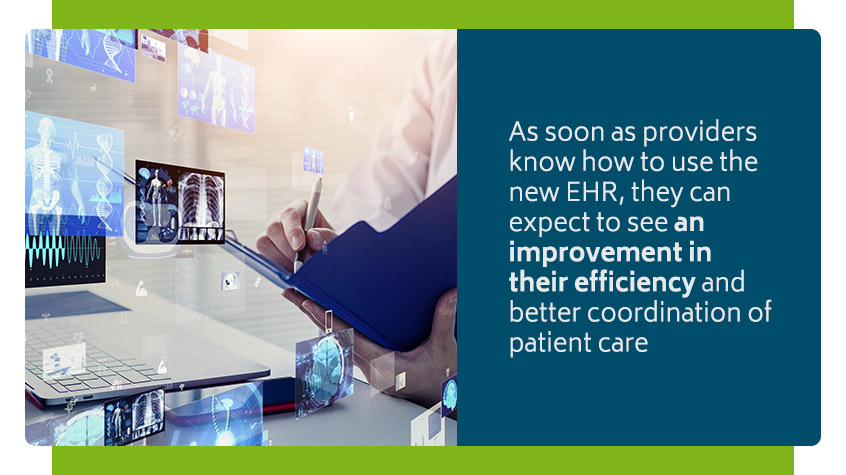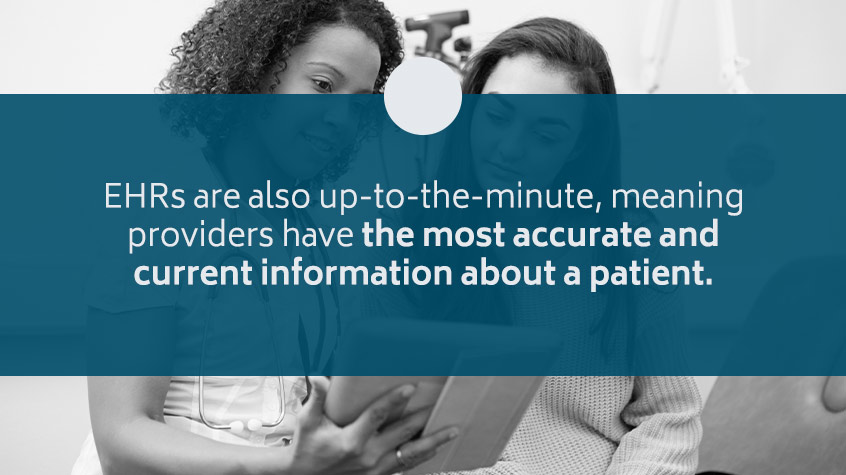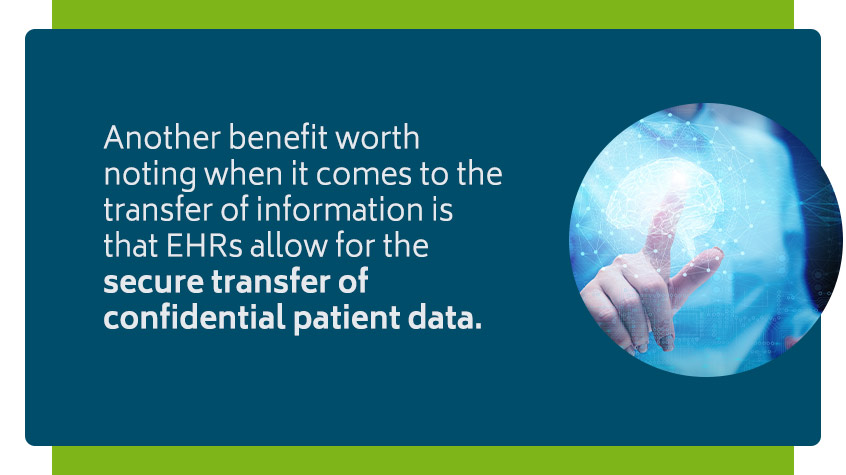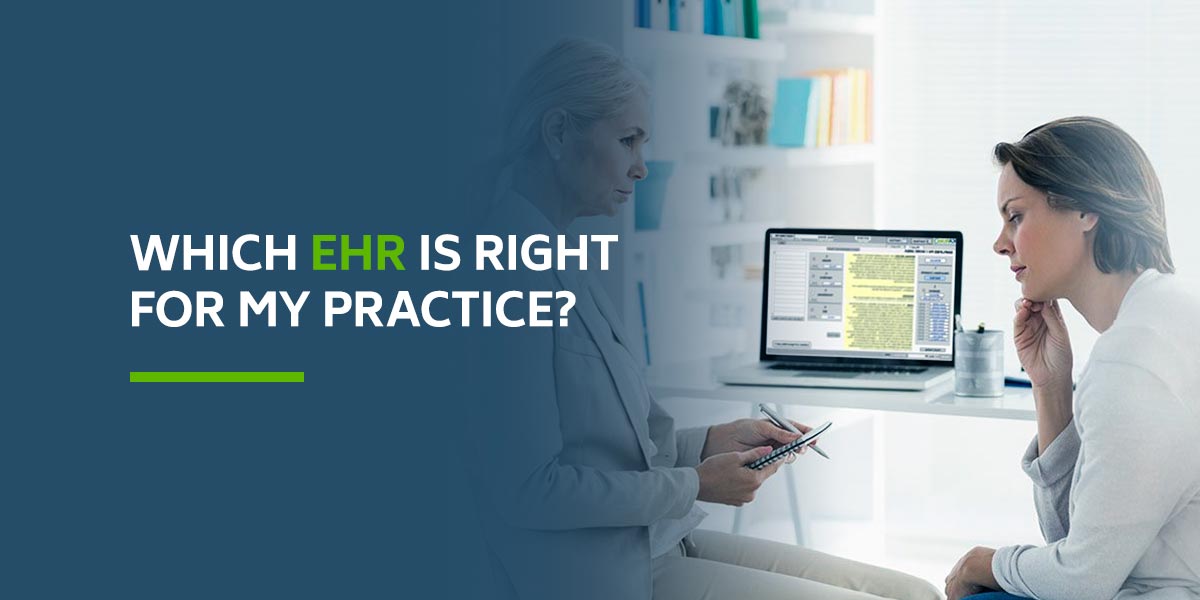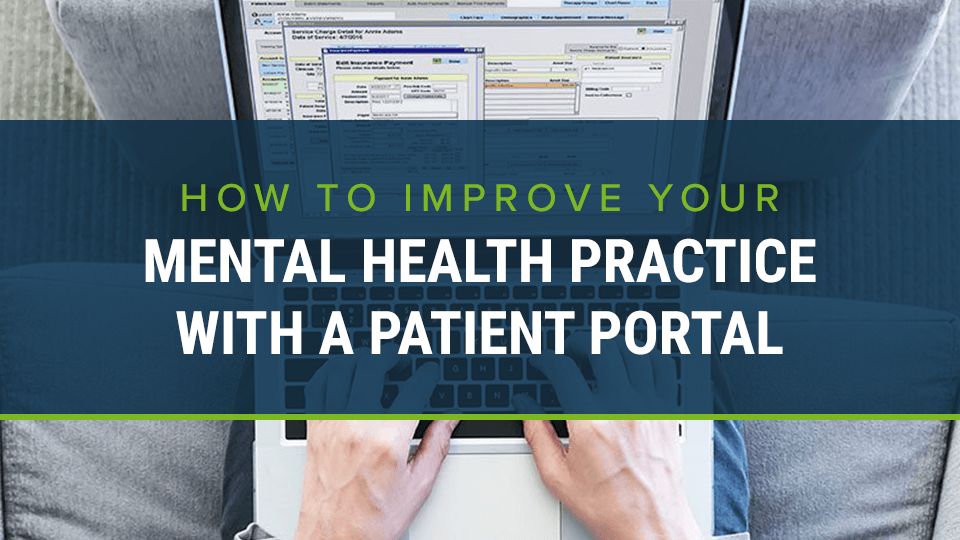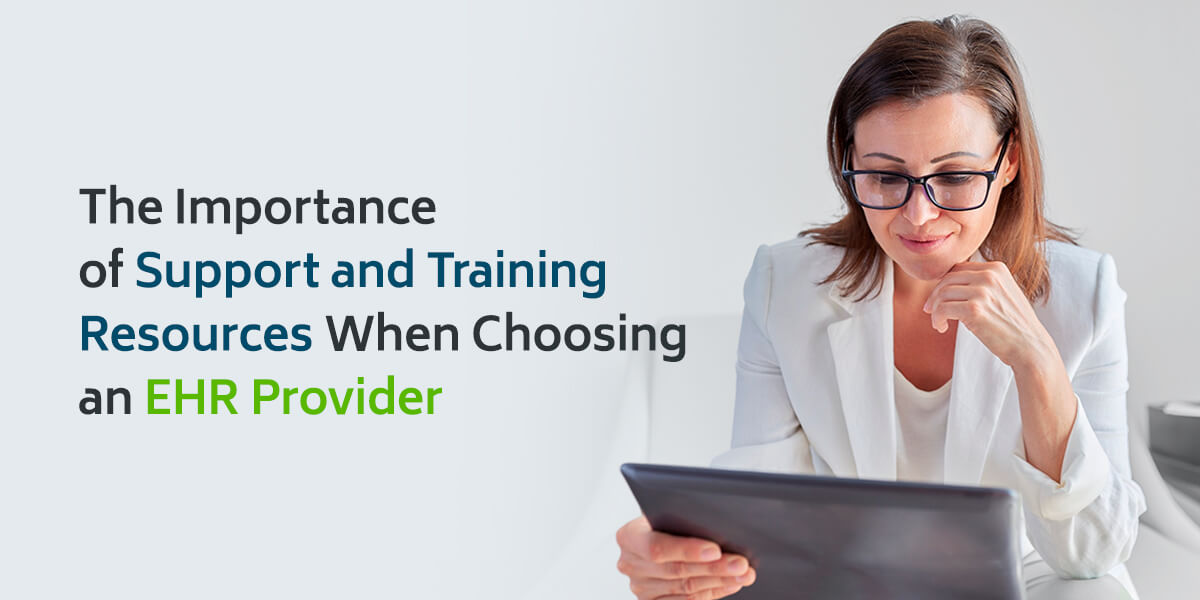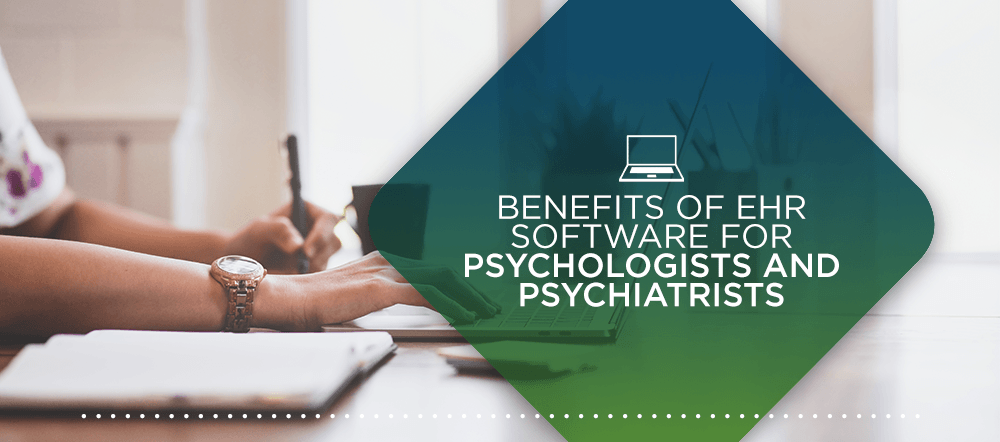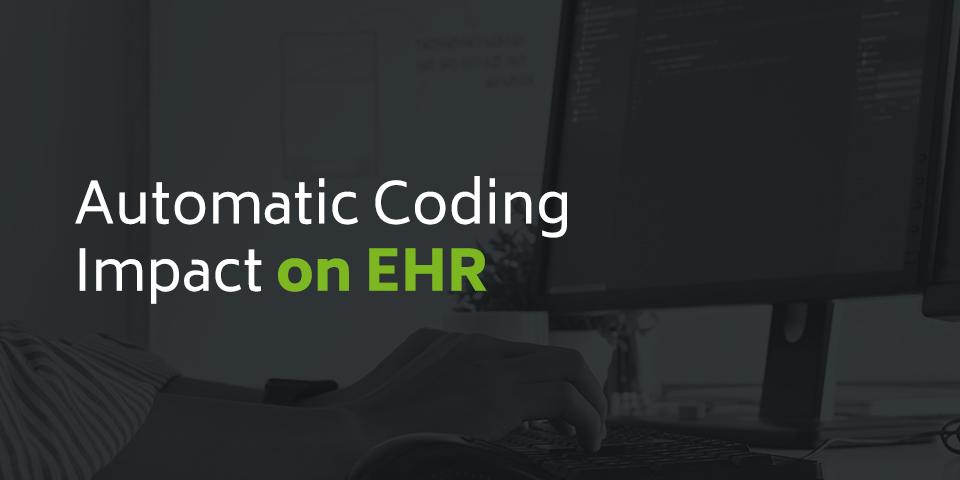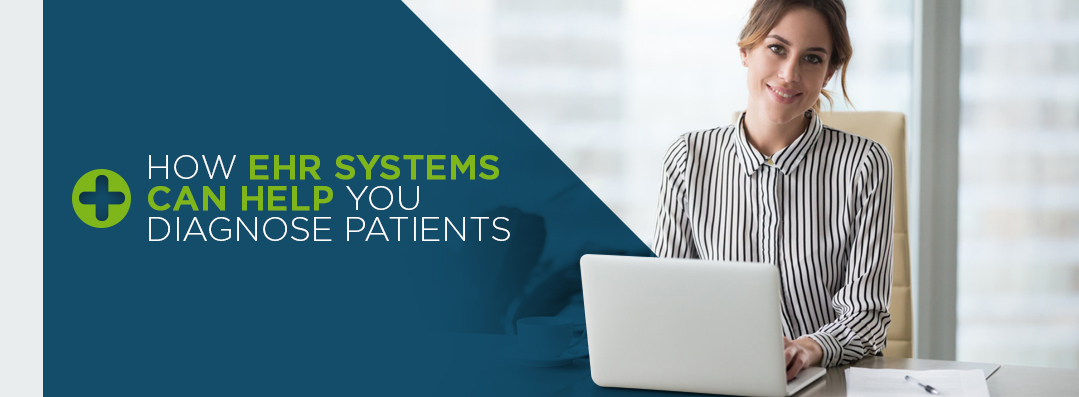The Benefits and Challenges of Adopting a New EHR Platform
Electronic health records (EHR) make patient information available in real-time to authorized users. They help streamline your workflow as a provider and give patients access to their medical records. Since the Patient Protection EHR mandate and Affordable Care Act went into effect, your practice has likely adopted an EHR platform. But after months or years of using it, you might find it doesn't fully meet your needs.
If that's the case, adopting a new EHR platform might be the right option for your practice. Knowing what EHR challenges may come up as you switch to a new platform can help you prepare for the transition. It's also worth considering the benefits of an electronic health records platform before you make a change.
Table of contents
The Benefits and Challenges of Adopting a New EHR Platform
- Challenge: Initial Cost
- Benefit: Long-Term Savings
- Challenge: Training
- Benefit: Increased Efficiency
- Challenge: Data Migration
- Benefit: Increased Accuracy
- Challenge: Interoperability
- Benefit: Transferring Information
- EHRs Are Worth the Investment
Challenge: Initial Cost
When you first invested in an EHR platform, you understood that the long-run cost savings would be greater than what you spent upfront. That knowledge made the cost of the system worthwhile. Still, it's important to pay attention to how much you spent on your first platform and how much you'll spend to adopt a new one. Understanding the cost of the platform can help you determine if making the switch will benefit your organization long term.
While many EHRs charge a monthly service fee, some also charge an upfront fee. Often, the cost of an in-office EHR is higher than one that uses a software as a service (SaaS) model. As you look for a new EHR platform, pay close attention to the cost of the service and what you get for it. Ask about the fees you'll pay so you have a ballpark figure of what you'll spend annually on the service.
It can also be helpful to calculate your potential return on investment (ROI) if you were to adopt a new EHR platform. Seeing the potential impact of electronic health records on your practice's bottom line can help you determine whether or not the switch is worth it.
Benefit: Long-Term Savings
An EHR offers the potential for considerable savings over time. Switching to an EHR platform that better meets the needs of your practice can help you save money through:
- Less time spent entering information: Manual entry often involves performing repetitive tasks that are better off automated. An EHR manages data entry for your practice, freeing your team of providers up to work directly with patients. The less time providers spend on administrative tasks, the more time they have for billable hours.
- Increased billing accuracy: People can make mistakes when entering billing codes, leading to denials and delayed payments. With an EHR, billing accuracy increases, making your practice more likely to get paid on time.
- Fewer insurance denials: If an insurance claim is not filed on time, the insurance company can deny it. With an EHR platform, you can minimize the likelihood that providers will file claims late.
- Improved patient communication: Patients can quickly get access to their records through your practice's EHR. They no longer need to wait by the phone or play phone tag with your practice. The more access patients have to their information, the happier they are likely to be with your practice, meaning they are likely to return and potentially refer your practice to others.
- More time to work with patients: When your providers aren't spending hours a day updating patient information, they have more time to provide care to patients. They also have an easier time accessing patient information, which can improve the patient experience and increase the size of the practice's patient base.
Challenge: Training
The providers and staff at your practice will need to learn how to use the new EHR platform. If you're already using one EHR platform, there might be some pushback from certain staff members about making the switch and having to learn a new system. Another common concern is that learning how to operate the new platform eats into time that would be better spent with patients.
One way to overcome any objections to learn another software program is to choose a platform that includes training as part of its customer service. Depending on how tech-savvy your team is, you might want to look for a platform that offers ongoing support.
Adequate training is crucial for the successful implementation of a new EHR. Your practice will be much better off if you schedule a day or two to devote to learning the new system rather than simply making the switch and hoping your team can figure things out as they go along. The more information your providers have about the new platform from the beginning, the better equipped they'll be to use it with their patients.
Benefit: Increased Efficiency
As soon as providers know how to use the new EHR, they can expect to see an improvement in their efficiency and better coordination of patient care. For example, an EHR typically includes a scheduling system that sets patients up for their next appointment and sends out reminder messages as the appointment time approaches. The system eliminates the need for having a receptionist call up each patient individually to confirm appointments.
With an EHR, ordering tests and prescriptions for patients is also much more efficient. You can put the orders directly into the system. Once the patient completes the tests or picks up their medication, you'll get a notice of it in the EHR.
Another way an EHR can increase efficiency is by putting patient information at your fingertips, no matter where you are. If a provider needs to work remotely, they can use their home computer to access the EHR system securely, eliminating the need to go into the office and reducing the potential for delays to a patient's treatment and care. The provider can also keep track of any messages sent about the patient and can reply to those or monitor the replies from others on the patient's care team.
Challenge: Data Migration
When your practice first started using an EHR, you most likely had to transfer years, if not decades, worth of patient files from a paper-based system to an electronic system. The initial scanning might have taken months, depending on the size of your practice, how far back patient files went and how much information you wanted to convert to digital form.
If you decide to switch EHR systems, you'll need to move all that data again. Fortunately though, this time the process won't be so time-consuming. You won't have to retrieve the archived paper files and rescan them. You will most likely need to contact your current EHR provider to learn about their transition process. The EHR company you work with now may use a proprietary format for storing information. The format most likely won't work with the new EHR platform.
In that situation, the company you currently work with will need to convert the files to a format that will work with the new EHR. You may need to work closely with your current EHR vendor to ensure it will do this for you. Check your contract to see if it mentions anything about converting the files. If the vendor won't do the conversion itself, your practice might have to do it independently. The new EHR vendor might be able to help in this situation.
Remember that due to the confidential nature of patient health records, your original vendor might require the new vendor to sign confidentiality agreements before it can get access to the existing health records.
Benefit: Increased Accuracy
The right EHR platform can help improve the accuracy of your practice, which can lead to improved patient care, lower costs and better outcomes.
For example, health care providers are well known for having handwriting that's difficult to read. If a provider writes out a prescription and a pharmacist has difficulty reading it, they could give the patient the wrong dose of medicine or the wrong medication. Misprescribed medications can have a severe impact on a patient's health. When the scripts are printed using a uniform and easy-to-read font, there's less chance the pharmacy will fill the wrong medication or give the patient an incorrect dose.
The right EHR can also make billing more accurate, leading to fewer denials and more timely payments. For example, there's less chance of a billing code being input incorrectly or misread when it's typed in rather than handwritten.
EHRs are also up-to-the-minute, meaning providers have the most accurate and current information about a patient. If a patient starts taking a new medicine that could potentially interact with a medication one of your providers wants to prescribe, there isn't a delay in sharing that information. As a result, the patient receives a better quality of care.
Challenge: Interoperability
On the surface, the term interoperable refers to the ability of one platform to exchange information with another. For example, a person who uses an Android device might have trouble sharing files with a person who uses an Apple device. The two systems have different file formats and aren't designed to work together.
Interoperability goes beyond the essential sharing of information, though. For one EHR to be interoperable with another, it needs to exchange information with that EHR, and the information shared needs to be usable by the second system. Interoperability is something to consider when you're switching from one platform to another and when you're thinking about the system used by other providers on a patient's care team.
You want to be able to migrate your existing patient data from platform A to platform B. You also want to be sure that other providers can access relevant patient information as needed. When searching for a new EHR platform, find out how it communicates with other systems. For example, can you easily send prescriptions to patients' pharmacies, or will the platform charge extra for that? Will you be able to share patient data with other practices, even if those practices don't use the same platform?
Benefit: Transferring Information
Concerns about interoperability aside, EHRs do have the potential to streamline the transfer of information between providers and between providers and patients. Before EHRs were widespread, the most common way for providers to communicate was through letters. After a patient visit, a provider would write a letter to other members of the patient's care team detailing the events of the visit, any new diagnoses and new medications.
The letter would be sent by mail and often by fax or email. Depending on how long it took the other providers to see it, there might have already been notable changes to the patient's health record or mental health. For example, the patient could have seen their first provider on Monday and another provider on Wednesday. With an EHR, the second provider would have received the notes from the first provider immediately, in time for their appointment. The immediate transfer of information minimizes any confusion or the potential for conflicting treatment advice.
EHRs also let patients get access to their health records and information without delay.
Another benefit worth noting when it comes to the transfer of information is that EHRs allow for the secure transfer of confidential patient data. Even if an envelope is marked "confidential, to be opened by addressee only," there's no guarantee that a mailed patient letter won't be intercepted or opened by the wrong party. The same is true of email and faxed messages. The right EHR platform provides access to a patient's information to those who need it and not to those who don't.
EHRs Are Worth the Investment
It wasn't that long ago that many practices were switching to an EHR for the first time. Now, you might be ready to try a new EHR vendor — one that will deliver a better ROI to your practice while improving your patient care. With the benefits of an integrated EHR, ranging from lowered costs to better access to patient data, EHR platforms have shown themselves to be worth the investment.
ICANotes is the premier EHR vendor for the behavioral health care specialty. We offer a 100% fully templated EHR to both inpatient and outpatient practices. The EHR is highly intuitive and easy to adopt with little training. If you're not satisfied with the EHR platform you've been using, contact us today to set up a free trial of ICANotes.

